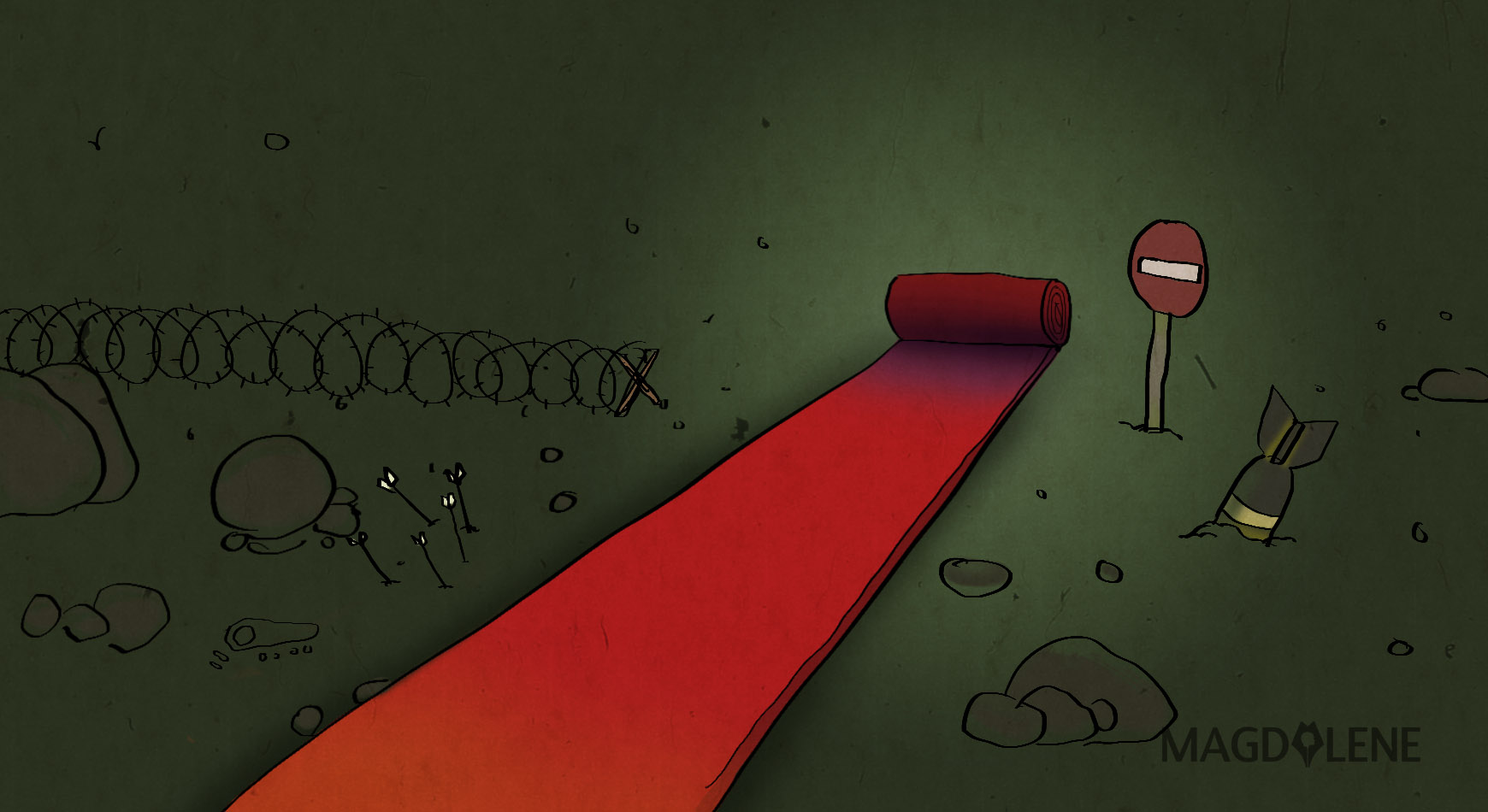Here's a secret: "Working hard" or "studying hard" isn't the solution to poverty or otherwise unfortunate circumstances. It's privilege.
Privilege is the stepping stone that got me to where I am today, not my own "hard work." I was privileged enough to be born to middle-class parents who did the hard work in order for me to be where I am today.
Privilege is what enabled me to finish my secondary education in a private high school with an annual tuition fee that could afford to send a student in the lower brackets of the socialized tuition system to UP for at least five semesters.
I was privileged enough to have a mother who came from a well-off family and a father who came from the province but got the luck of the draw in getting a corporate job, even without an elite education.
Yes, my parents and my parents' parents worked hard, and every day I gratefully reap the fruits of their love and labor. But the farmers who put the rice on my table, and the fisher folk who put the catch beside it also worked hard. The countless other workers who built the roof I sleep under, the school building that I attend class in – they all worked hard.
The list goes on.
Opportunity
Yes, I can admit that I "studied hard,” enough for our educational system to grant me honors as a mark of my “intelligence", enough to pass the exams I needed to get into a good university. But so did countless of other students in public schools, who have been deprived of the right opportunities to quality education.
Even in law, the benefits and effects of having privilege permeate the institution that should be enforcing what is just and fair. People with status, names, wealth, and influence rise above the ranks of an institution that should have penalized them for not doing what is legal or for not complying with what is right.
That's the magic of privilege. It gives people with enough means like me the chance to slug it out with the higher-ups by gritting our teeth, keeping our heads down and obeying the system.
Privilege gives those in the right social circles the chance to game the said system to their advantage. But it also puts down those who would have otherwise had the same access to the same rights, but who are, unfortunately, without the magical benefits of privilege.
Tell that to the out-of-school youth who can't afford an education or the laborers who work under illegal conditions just to get by every day on minimum wage.
You know all the sad statistics, the grim figures, the gut-wrenching stories. These are what our privileged circles and environments inculcated in us since childhood; we are told such examples to goad us into working harder and studying harder.
You know about these people. Yet why do many seem to think they are in these deplorable circumstances, simply because they failed to study hard or work hard? Are people that blinded in believing that those who are in poverty are all lazy and uneducated?
So the next time you have the gall to tell someone to "work hard" or "study hard,” I challenge you to think about the opportunities in your life that put you in the blessed position to say that.
Because unless you're blind, apathetic, or that insensitive to the state of this country and our fellow Filipinos, you know as well as I do that "working hard" and "studying hard" will only ever make a difference to the few who are privileged, not the unfortunate majority.
This story was first published in Rappler.com, a Manila-based social news network where stories inspire community engagement and digitally fuelled actions for social change.







Comments